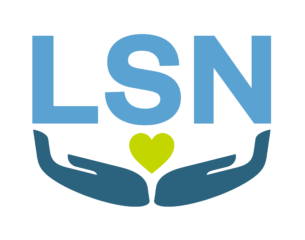What are some of the unique aspects of the fellowship at the University of North Carolina at Chapel Hill (UNC-CH) Counseling and Psychological Services (CAPS)?
The CAPS fellowship offers a full and broad training experience. Fellows provide brief individual therapy, group therapy, referral coordination, walk-in services and outreach. Fellows will be able to explore their interests within the context of a large interdisciplinary counseling center in a major public university. Some key attributes of our program include:
- Multicultural topics are woven into all of the training activities at CAPS. Team meetings, case conferences and supervision provide opportunities to discuss cases in depth and explore the ways culture and identity impact students and our work as therapists. Weekly seminars address topics such as sexual orientation, gender identity, privilege and cultural humility and a range of social justice issues. Across the board, we are open, engaged and committed to growth as therapists and as people in a multi-cultural environment.
- Fellows may have the opportunity to participate in supervision and training for MSW interns at various levels. For example, they may have the opportunity to present a seminar topic, coach Referral Coordination, or in the second year, to provide individual clinical supervision.
- Each fellow provides a half-day of walk-in services every week. This “triage” visit is generally the first contact students have with CAPS. During this brief (generally 30 minute) appointment the provider will assess the student’s needs and discuss possible dispositions. Fellows will assess risk and safety of students who present in crisis and will help to develop a safety plan with the student. Fellows are encouraged to while to consult with their triage team and/or the Clinical Coordinator in cases of risk and crisis. Fellows participate in weekly triage supervision to discuss their triage experiences in more depth and strengthen their triage skills. Past trainees have shared that they have developed more confidence in their ability to manage crisis and triage at future settings.
- CAPS is often asked to provide outreach across the university. Examples include presentations on mental health or substance use, connecting with a student organization, support after a death in the university community or representing CAPS at campus events. In addition, fellows may be able to develop outreach programs targeting a population, concern or area of interest to students.
- Prior to the fellows arriving at CAPS, the Coordinator of Training sends out a self-assessment questionnaire in order to get a better sense of interest areas, theoretical orientation, and training needs. While CAPS providers are all generalist practitioners, we work hard to match supervisors and groups to the unique interests of each fellow.
What are you looking for in a fellow?
We seek fellows who embrace a life-long learning perspective and are open to continuing to learn from their peers as well as from staff and their clients. Given the value CAPS places on anti-oppressive practice, we encourage trainees to continue to explore issues of difference and to reflect and share their experiences in this area. We look for trainees who are seeking out and are receptive to feedback. Fellows who have had a wide range of clinical experiences are often able to transfer their skills to our busy center. We also value flexibility, openness, and the capacity to work in a fast-paced and changing environment.
Can you describe the student population at UNC-CH?
UNC-CH is a large public university with a variety of undergraduate and graduate programs. Current information and statistics are available at: https://www.unc.edu/about/by-the-numbers/
Statistics can be viewed at: https://oira.unc.edu/reports/
What are the common presenting concerns of students who come to CAPS?
We see a broad spectrum of presentations at CAPS. Fellows will likely have the opportunity to work with students reporting anxiety, depression, trauma, interpersonal violence, relationship concerns, family issues, grief, academic concerns, adjustment issues, identity issues, disordered eating and body image concerns and others.
What does a typical day look like for fellows?
Although every day varies for fellows there are a few core activities. Fellows are scheduled for brief therapy, referral coordination, groups (if assigned to a group experience), and triage each week. Each fellow receives two hours of individual supervision per week and participates in a weekly Fellow Team (group supervision/case conference). Fellows have an hour break for lunch and some flexibility in terms of scheduling their brief therapy slots during the day. Fellows also have some time in their schedule for paperwork/administrative activities.
What is the Triangle Area like?
The Triangle area of North Carolina is comprised of three adjacent cities; Chapel Hill, Durham, and Raleigh. UNC-CH is, not surprisingly, located in Chapel Hill. Each of these cities has a distinct “vibe” but all have excellent dining options, cultural opportunities, and attractions to visit. The Triangle area also has numerous parks and hiking trails locally. We are located about three hours to the nearest beach and four hours to the mountains, which allows for many opportunities to engage in outdoor activities.
Where do trainees tend to live?
Over the years, the majority of our trainees have opted for a short commute and access to free bus lines by living in Chapel Hill or Carrboro (another neighboring town). Some trainees have opted to live in Durham and many of our staff enjoy living there, as well.
Click for more information about Chapel Hill and Durham

